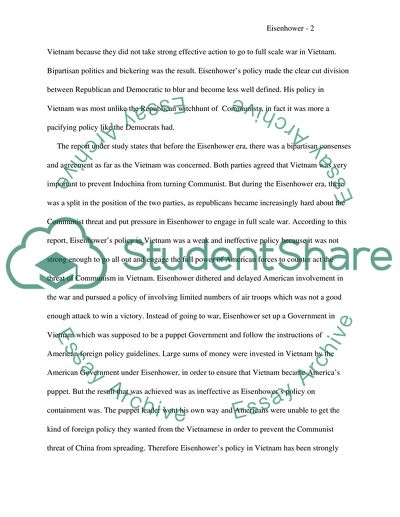Cite this document
(“Vietnam and the Eisenhower Era Essay Example | Topics and Well Written Essays - 2250 words”, n.d.)
Vietnam and the Eisenhower Era Essay Example | Topics and Well Written Essays - 2250 words. Retrieved from https://studentshare.org/history/1535014-vietnam-and-the-eisenhower-era
Vietnam and the Eisenhower Era Essay Example | Topics and Well Written Essays - 2250 words. Retrieved from https://studentshare.org/history/1535014-vietnam-and-the-eisenhower-era
(Vietnam and the Eisenhower Era Essay Example | Topics and Well Written Essays - 2250 Words)
Vietnam and the Eisenhower Era Essay Example | Topics and Well Written Essays - 2250 Words. https://studentshare.org/history/1535014-vietnam-and-the-eisenhower-era.
Vietnam and the Eisenhower Era Essay Example | Topics and Well Written Essays - 2250 Words. https://studentshare.org/history/1535014-vietnam-and-the-eisenhower-era.
“Vietnam and the Eisenhower Era Essay Example | Topics and Well Written Essays - 2250 Words”, n.d. https://studentshare.org/history/1535014-vietnam-and-the-eisenhower-era.


